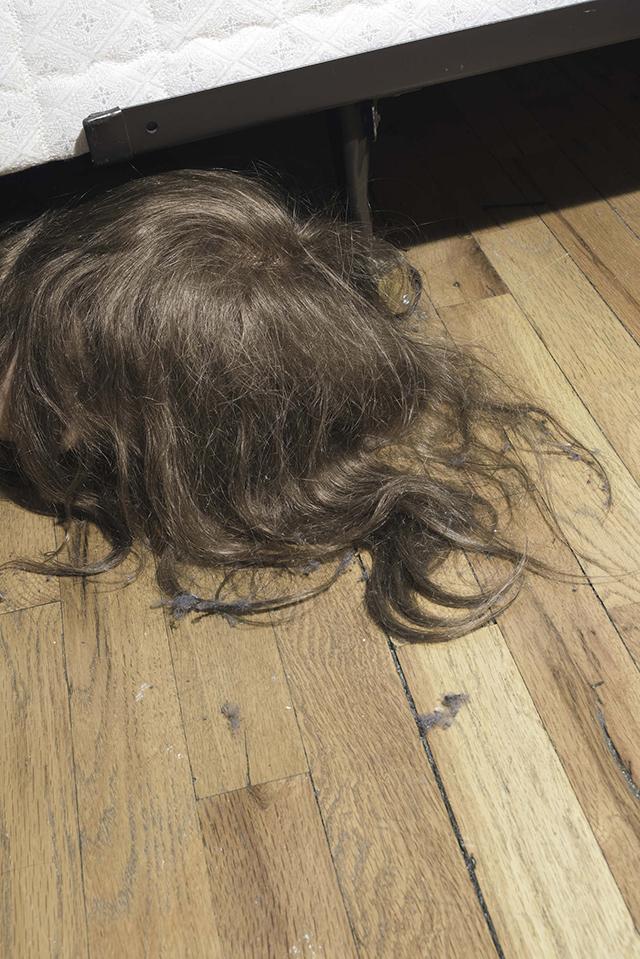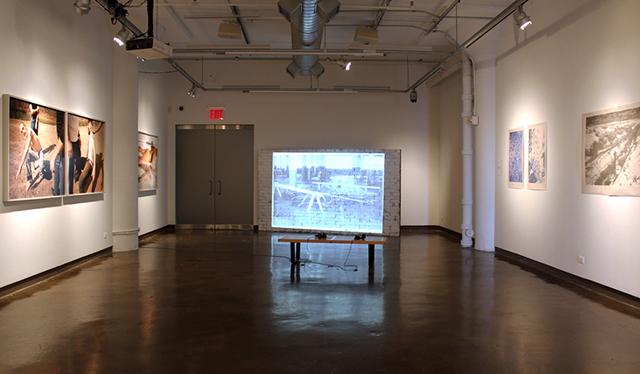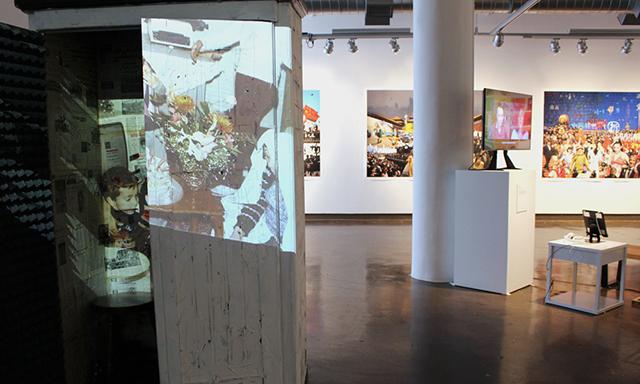After the conclusion of the 2016 SVA MFA Fine Arts thesis show last month, the school’s MFA Photography, Video, and Related Media thesis exhibition opened at the SVA Chelsea Gallery. Different than the fine arts show, which had a specific thematic focus on American politics and power dynamics, this thesis exhibition presented works by 28 graduating artists that were open-ended and unbound by any singular topic or theme.
“Some fine arts programs become known for a ‘house style’ of sorts, but in our program, students are encouraged to develop their own ideas,” explains the exhibition’s curator, Bonnie Yochelson, to The Creators Project. “As a result, the curator’s job is pretty daunting. At the very least, I tried to ‘do no harm,’ in that I try to bring works together that do not interfere with each other. At best, I am able to create ensembles in which works play off each other in subject or mood.”
Videos by VICE

Image from Third Space, Sara Meghdari
Despite the unrestrained nature of the exhibition, many of the artists seemed to converge on ideas of identity within their works. Sara Meghdari‘s Third Space is a digital archive of conversations held between Americans and Iranians through Skype, arranged and organized by the artist, who gave the participants specific guidelines to follow in an effort to create a safe “third space.”
xoxo, Darlene, Nick Alciati
xoxo, Darlene by Nick Alciati is an installation of the artist’s dream bedroom from his childhood. A fusion of 90s and 2000s iconography from posters of Christina Aguilera and Lenny Kravitz to dolls of Britney Spears and *NSYNC are mixed with videos and hung photographs of the artist portraying female idols from his childhood, reflecting the complex dynamics inherent to growing up as an individual who identifies as genderfluid.

I Take My Body Back, Kelsey Lynn
Our bodies and the sexual abuse often forced upon them are another prominent topic within the thesis exhibition. I Take My Body Back by Kelsey Lynn deals with sexual assault. A retelling of the artist’s experience of sexual assault is inscribed onto panties hanging on the gallery wall, which visitors are allowed to rip off in an effort to help overcome the trauma. A hanging structure made of panties lies next to the wall work, strong enough to physically hold the weight of the artist and others who are dealing with sexually traumatic experiences.

Hair from Aftertaste, Hope Antonella Guzzo
Hope Antonella Guzzo engages with the ephemerality of our physical bodies in her project Aftertaste. This series of photographic still lives depict plastic-wrapped consumable goods, decaying fruit peels, and a discarded head of hair to reference the human tendency to frenetically preserve our slowly weakening bodies through the course of our lives, despite the ultimate, engrained futility in doing so.
“The shift toward body and identity has been steadily growing since the 1990s, when so-called identity politics took center stage in the culture generally. For a time, the impact of this critique was negative: many students felt that to focus on subjects beyond their own experience was inauthentic and presumptuous,” Yochelson tells The Creators Project. “As the debate over the nature of race, class, gender, sexuality and nationality have blossomed, students have found many ingenious ways to explore these issues through their personal experiences.”

Installation View: 2016 SVA MFA Photo, Video, and Related Media Thesis Exhibition
Throughout most of these projects, there is a distinct lack of framed, straight-on photography, a fact reflective of a time where digital culture is beyond pervasive and art mediums intermix with one another ceaselessly. Yochelson sees both the positive and negative consequences of this shift: “Students no longer feel as urgently connected to the history of photography. Fewer and fewer students are showing traditional, framed prints in the thesis shows, instead experimenting with installation. Sometimes the content is not strong enough to justify the means, but even in these cases, the students have honed their skills.” Despite this, Yochelson sees a future where there may be a reversion to older photographic tendencies: “I suspect the pendulum may swing back towards simpler means and even a closer scrutiny of photographic traditions.”

Installation View: 2016 SVA MFA Photo, Video, and Related Media Thesis Exhibition
SVA’s MFA Photography, Video, and Related Media thesis exhibition was on display until July 1st, but an online archive of the works can be found here.
Related:
Art School Exhibition Explores the Politics of Pop Culture
Facebook Photos and Collages Converge in Portraits of Digital Lives
NYU’s Spring Showcase Takes on the Future of Interactive Tech Art




